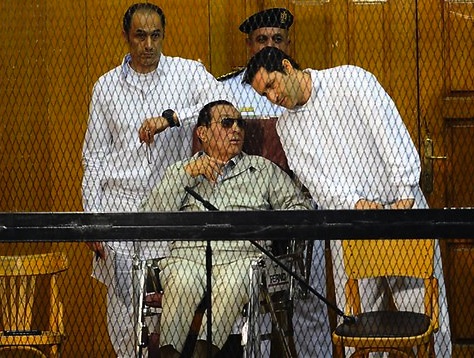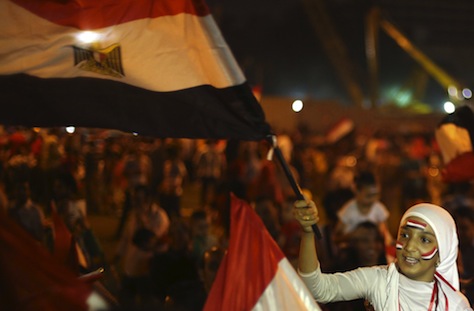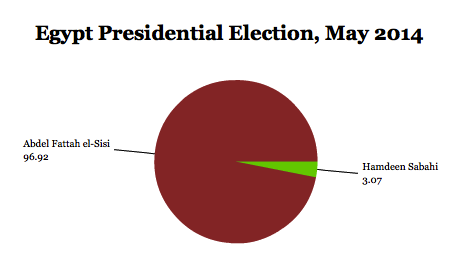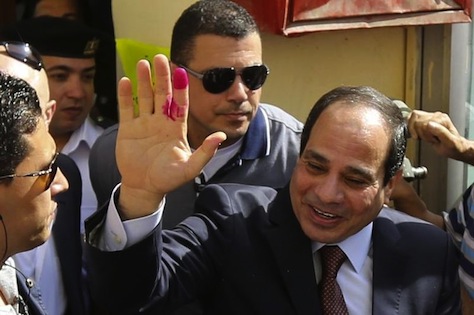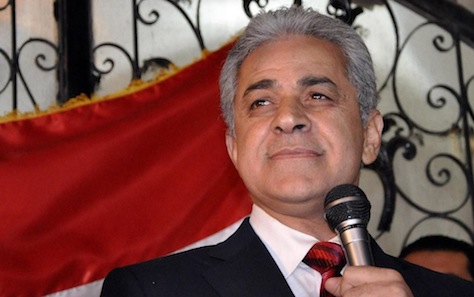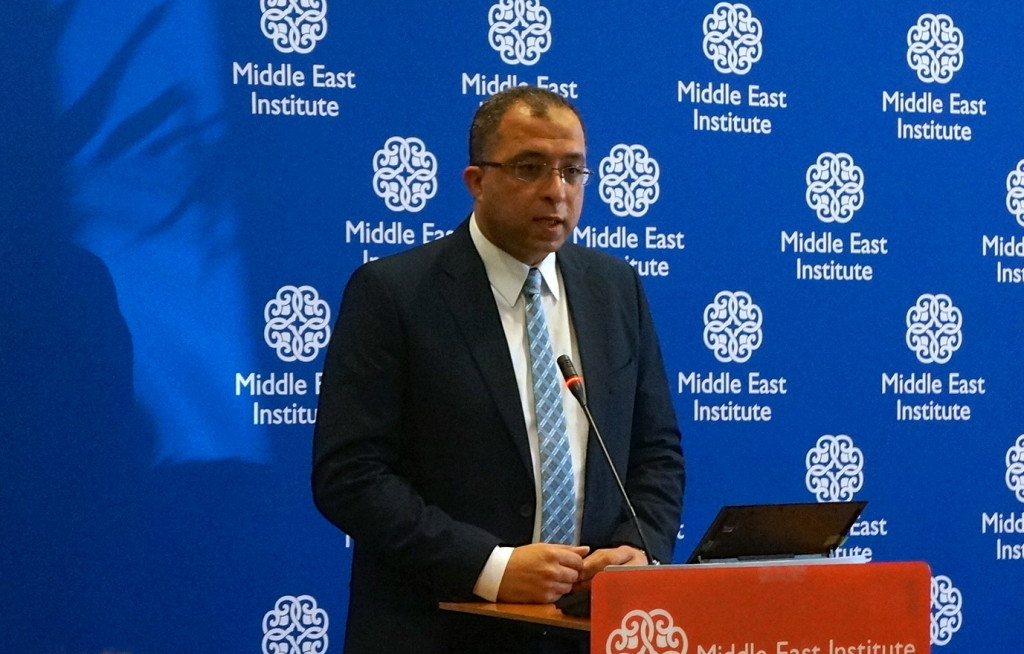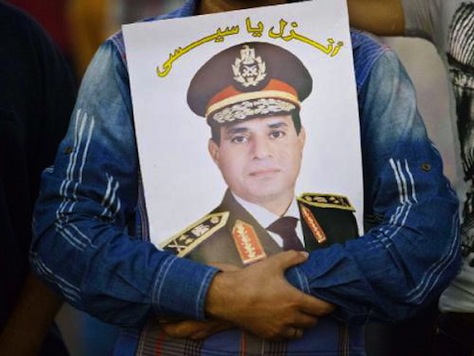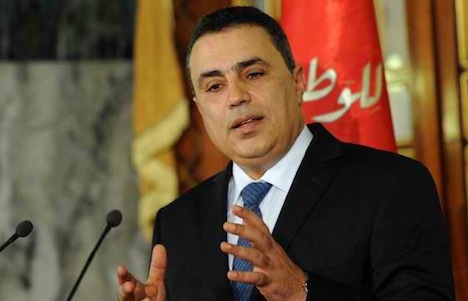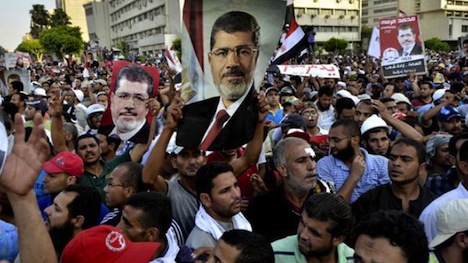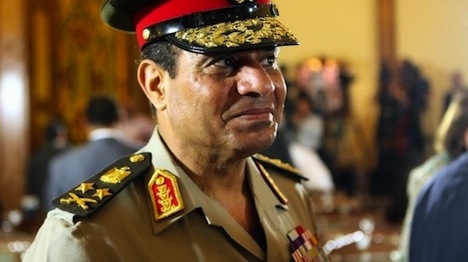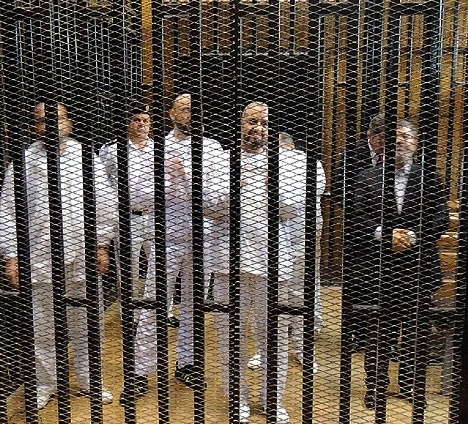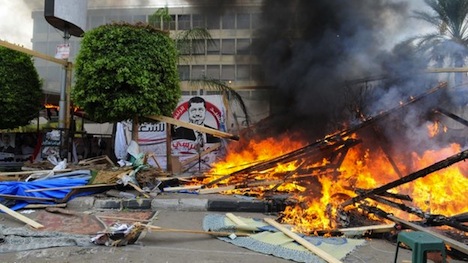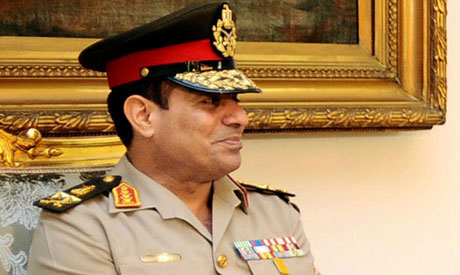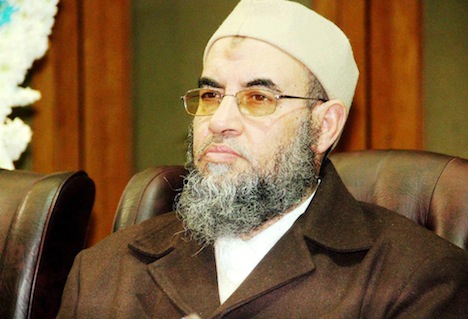It should come as a surprise to no one that Hosni Mubarak, Egypt’s president between 1981 and 2011, has been released from prison and cleared of all criminal charges stemming from his 30-year reign, including the violence deployed against the protesters who eventually forced Mubarak from power in February 2011 in what would become the high-water mark of the Arab Spring.![]()
There’s no more potent symbol that Egypt’s current government is simply a more military-strong version of Mubarak-era authoritarianism. Egypt’s re-Mubarakization could hardly be more complete:
“This is a political verdict. The judiciary has been procrastinating for four years so they could clear him after hope had been lost,” the father of Ahmed Khaleefa, 19, who was killed in 2011, told Reuters outside the court. “The verdict hit us like bullets. I consider that my son Ahmed died today.”
In the Mubarak era (until the very end), Egypt was governed by a secular autocrat backed by the full force of the Egyptian military.
Today, under Abdel Fattah el-Sisi, Egypt is governed by a secular autocrat backed by the full force of the Egyptian military.
Looking back today, the central power struggle during the Arab Spring wasn’t between the Mubarak regime and the youthful protestors gathered in Tahrir Square. It wasn’t even between Islamists and secularists.
It was an internal struggle between the Mubarak regime and the Egyptian army over succession. It was a fight between the entrenched conservative interests of the military and the more liberal elements of the Mubarak regime, including Mubarak’s son Gamal, a one-time potential successor, who had launched plans for a vigorous liberalization and economic reform program to address Egypt’s state-heavy, bloated economy. (Gamal, himself on trial for corruption, was released quietly in December 2013.) That, in part, explains why the military set itself as neutral between Mubarak and the protestors in 2012 — and why some protestors initially proclaimed the military as the guarantors of Egypt’s new revolution.
El-Sisi’s government may yet be forced to reform Egypt’s economy, especially if it wants to mollify the millions of unemployed workers among Egypt’s especially young labor force. He’s already started slashing fuel subsidies that suck around one-third of the Egyptian budget. He’ll have to do far more in the months and years ahead if he wants to consolidate his own power, and he’ll have to do it without upsetting the lucrative personal financial interests of the Egyptian ‘deep state.’
Now completely dominant in its power, the el-Sisi regime can afford to take a softer hand with former Mubarak era officials, who might prove useful in the difficult tasks ahead. Cynics will note that the decision to release Mubarak, with the inevitable street protests it has generated, can also be a helpful exercise in identifying, detaining or imprisoning the government’s remaining liberal and Islamist opponents.
Liberals and revolutionaries who now decry Mubarak’s release largely have themselves to blame for welcoming el-Sisi’s initial move against Egypt’s first (and, for now, only) democratically elected government.
Liberals throughout Egypt, including the globally respected Mohamed ElBaradei, the former head of the International Atomic Energy Agency, applauded el-Sisi’s July 2013 push to depose Mohammed Morsi, an Islamist who narrowly won Egypt’s July 2012 president runoff. Morsi often exhibited insular thinking in surrounding himself with members of Egypt’s now-banned Muslim Brotherhood (الإخوان المسلمون) instead of the broad-based unity government he promised to build. Morsi also demonstrated hubris and considerable disrespect for the rule of law, notably when he tried to assume temporary dictatorial powers to push through an Islamist constitution for Egypt. But it was clear that, despite the awkward position of the United States, the military’s move amounted to a coup that ended Egypt’s experiment in democratic politics.
El-Sisi brutally dealt with the protesters (and journalists) not already cowed by years of protest, revolution and counterrevolution. Even as allies like ElBaradei withdrew their support, his military government moved with lethal determination to consolidate its control, killing hundreds and jailing many more throughout the rest of 2013 with a level of brutality previously unassociated with the military.
The government pushed through a new constitution, less Islamist than the Morsi-era document and, at face value, a much more liberal constitution, in January 2014 in a referendum that commanded the support of over 98% of voters.
In the aftermath of the referendum, the interim government essentially paved the way for el-Sisi to easily take the reins of permanent government in a carefully orchestrated transition, all presented under the aegis of Egypt’s newly democratic process.
At the end of May, Egypt held a presidential election that was so titled in favor of el-Sisi, who had resigned from the military for the purpose of running for president, won over 96% of the vote, massively defeating the more liberal nationalist candidate Hamdeen Sabahi, who placed a strong third place in Egypt’s contested May 2012 presidential election. El-Sisi’s margin of victory was so strong that it actually surpassed the margin claimed by Syrian president Bashar al-Assad in his own presidential ‘election’ and the margins won by Mubarak in his 1999 and 2005 ‘elections.’
By the time el-Sisi came to power, the remnants (‘felool‘) of the old Mubarak regime and the Muslim Brotherhood had both been exhausted as potential political competitors, given military forces a wider berth for abrasive oppression.
For his part, Morsi is still in prison awaiting a trial on charges of inciting deadly violence and murder. Many other leading members of the Muslim Brotherhood, including one-time presidential candidate Khairat el-Shater, are also imprisoned pending trial. No one expects charges against Morsi and other leading Islamists to be dropped.
